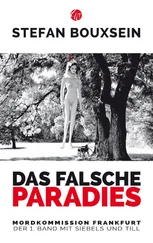Stefan Bachman - The Peculiar
Здесь есть возможность читать онлайн «Stefan Bachman - The Peculiar» весь текст электронной книги совершенно бесплатно (целиком полную версию без сокращений). В некоторых случаях можно слушать аудио, скачать через торрент в формате fb2 и присутствует краткое содержание. Жанр: Фэнтези, Детективная фантастика, на английском языке. Описание произведения, (предисловие) а так же отзывы посетителей доступны на портале библиотеки ЛибКат.
- Название:The Peculiar
- Автор:
- Жанр:
- Год:неизвестен
- ISBN:нет данных
- Рейтинг книги:5 / 5. Голосов: 1
-
Избранное:Добавить в избранное
- Отзывы:
-
Ваша оценка:
- 100
- 1
- 2
- 3
- 4
- 5
The Peculiar: краткое содержание, описание и аннотация
Предлагаем к чтению аннотацию, описание, краткое содержание или предисловие (зависит от того, что написал сам автор книги «The Peculiar»). Если вы не нашли необходимую информацию о книге — напишите в комментариях, мы постараемся отыскать её.
The Peculiar — читать онлайн бесплатно полную книгу (весь текст) целиком
Ниже представлен текст книги, разбитый по страницам. Система сохранения места последней прочитанной страницы, позволяет с удобством читать онлайн бесплатно книгу «The Peculiar», без необходимости каждый раз заново искать на чём Вы остановились. Поставьте закладку, и сможете в любой момент перейти на страницу, на которой закончили чтение.
Интервал:
Закладка:
Bartholomew’s gaze traveled on to the house. Something stirred in an upper window. He tensed, half expecting to see the figure again, the dark one that had stood there the day his friend had been taken. The window swung open. Some flimsy curtains were brushed aside. It was the faery mother, seated on a straight-backed wooden chair, head up, hands in her lap, looking out.
Bartholomew pulled back from the glass. He had hardly ever seen her before. But then he hardly ever saw anyone. She was a wood spryte, small and delicate, with a crown of antlers growing out of her head. She was almost pretty. All but her eyes. They were flat, empty, staring out onto the yard as sightless as marbles. She had been weeping.
Bartholomew squinted at her, puzzled. Does she miss her son? Was he kidnapped, after all? He had almost managed to persuade himself that the lady in plum was a magician of some sort, and a relative, and had taken his friend away with her to give him a better life. But all in an instant he wasn’t so sure. That was not the face of a lonely mother. That was the blank, disbelieving face of someone with so much grief locked up inside her that she didn’t know what to do with it, someone with a barb in her heart that no amount of crying or screaming could ever dull.
In the yard, the sour-looking woman continued to lay out the washing. She faced the house, even walked under the window several times, but she never even glanced at the faery in it. What a rude, mean person, Bartholomew thought. He looked back at the faery mother.
Her mouth had begun to move. Her lips were forming words, but he was too far away to make sense of them. In her lap, her hands folded, unfolded. Slowly she began to rock back and forth in the chair. The sour-looking woman was laying out bedding now, turning the yard into a checkerboard of pillowcases and withered grass.
Bartholomew inched closer to the windowpane. A breeze was picking up. Wisps of the white curtain were blowing across the faery mother’s face, into her antlers and eyes. She didn’t move from her chair.
The breeze gathered in strength. Sheets and bedclothes began to shift, skittering gently across the weeds in the yard. A shadow passed overhead. Bartholomew glanced up and saw that the summer sky had become low and angry, darkening with sudden weather. The sheets began to curl over themselves, piling up into heaps.
The sour-looking woman worked on, flicking out more sheets, even as the other ones twisted across the yard. At the end of Old Crow Alley, the two men were still deep in conversation. The dog had found a scattering of slop and was scratching through it lazily. All seemed oblivious to the flooding darkness.
The breeze was a wind now, churning the bedclothes, picking them up and hurling them into the air. Curtains slashed and flew across the window where the faery mother sat, now obscuring her, now revealing her stark against their whiteness.
Suddenly there was a vicious shriek, like metal grinding against metal. The faery mother’s face exploded inches from his own, flat against the other side of his window. Her eyes were huge, dead-black, and sunken. Tears flowed from them, too many tears, streaming over her cheeks. Her mouth gaped open.
Bartholomew screamed. He tried to jerk back from the glass, but he couldn’t move. His body had gone cold, stiff as the water pump in winter. The faery mother’s mouth opened even wider, and a horrid keening wail snaked from within.
“You won’t hear it come!” she screamed, and her eyes began to roll back in her head.
Bartholomew was crying, trembling, terror strangling the air from his lungs.
“You won’t hear a thing. The cloven hooves on the floorboards. The voice in the dark. It’ll come for you, and you won’t hear a thing.”
Bartholomew clamped his hands across the window, trying desperately to block out the face.
But she only laughed a hopeless, anguished laugh, and sang:
“You won’t hear it calling. You won’t know until it’s too late, too late, TOO LATE!”
With a start, Bartholomew fell back and struck his head hard upon the floor.
The next morning, while Bartholomew was still in bed, his mother came in with a smelly, boiled poultice, and a wet rag for his head. She didn’t ask where he had been. When he thought of it-the little faery house in the attic, the round window, and the face-it made him feel a million times worse.
“Mother?” he said quietly. “Mother, did you hear anything about the Buddelbinsters?”
“The Buddelbinsters?” Her voice was almost as hoarse as his own. “Don’t bother about them. There’s enough of bad luck in this house. We don’t need anyone else’s.”
“Bad luck?” Bartholomew sat up a little. “About their son?”
“Shush now, Barthy. Lie still. Not the son. The mother. Driven mad with grief, Mary Cloud says, but that’s just talk. Likely she died of the cholera. It’s all a-raging in London now.”
His mother finished patting down the poultice and left. The flat door banged shut, then the door to the alley. He heard Hettie pattering in the kitchen, and the clink of a bowl. A few minutes later she came into the tiny room. Her arms were bare. She had pressed the juice from the red bird-berries Mother used to brighten the colors in the washing and had painted her arms in sloppy, twining lines.
“Hallo, Barthy,” she said. She smiled at him.
Bartholomew stared back. He almost shouted at her. What a silly thing to do. What a silly, know-nothing little person you are!
Hettie kept smiling.
“Where’d Mother go?” he asked after a while.
She stopped smiling and climbed up beside him on the bed. “To find some turnips for breakfast. It’ll be all right, Barthy.”
Bartholomew looked down at their arms, Hettie’s dripping red, right next to his own delicate swirls. He knew why she had done it then.
“Well, aren’t we the finest-looking people in Bath,” he said, and then they went to the wash tub and he helped her scrub away the red, and they were both smiling by the time Mother came back with the turnips.
CHAPTER VI
Pak , n. Faery vernacular meaning “one who has a long nose,” or spy. (Not to be confused with the breed of faery called “puck” or “pooka,” those wicked shapeshifters whose cunning, and shocking lack of moral restraint, do yet again illustrate for us the debased nature of the fay.)
Mr. Jelliby slammed the dictionary closed and buried his head in his hands, letting the leather-bound volume slip from his lap. It fell to the carpet and lay there, spine up, its pages crumpled.
A low moan escaped his lips. They thought he had been spying. Mr. Lickerish, Lord Chancellor to the Queen, thought he was a spy. He, of all people. No doubt the Throgmortons and Lumbidules of this world would think nothing of breaking down a door or two in order to inform themselves on other people’s business. But Mr. Jelliby, who thought simply getting out of bed quite tiring enough and had no wish to pry into other people’s business, was now the one under suspicion. He was not used to being distrusted, and it upset him very much.
For days after his disgraceful departure from Nonsuch House he was in a glum mood. Ophelia noticed almost at once, but when she asked what was troubling him he wouldn’t say. He stopped going to his club. He stopped seeing the visitors who came to the house on Belgrave Square. For the Covent Garden performance of Semiramide, he was absent from the family box, and he even stayed home from service on Sunday morning. When Ophelia at last confronted him and told him she had heard what had happened from some dear and trusted friends and that he needn’t worry himself over it, he locked himself in his study and refused to come out.
Читать дальшеИнтервал:
Закладка:
Похожие книги на «The Peculiar»
Представляем Вашему вниманию похожие книги на «The Peculiar» списком для выбора. Мы отобрали схожую по названию и смыслу литературу в надежде предоставить читателям больше вариантов отыскать новые, интересные, ещё непрочитанные произведения.
Обсуждение, отзывы о книге «The Peculiar» и просто собственные мнения читателей. Оставьте ваши комментарии, напишите, что Вы думаете о произведении, его смысле или главных героях. Укажите что конкретно понравилось, а что нет, и почему Вы так считаете.












